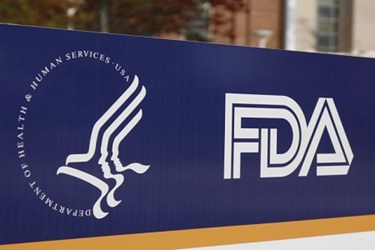FSMA Empowers The FDA To Suspend Facility Registrations, Close Plants
By Laurel Maloy, contributing writer, Food Online

Recent plant closures by the FDA point out FSMA’s effectiveness and commitment to improving the safety of our nation’s food supply chain
The FDA has utilized the power granted under the Food Safety Modernization Act (FSMA) to shut down a facility for a second time since its enactment in 2011.The first occurrence was in Nov 2012 when the FDA suspended the facility registration of Sunland, a peanut butter producer in Portales, NM. Sunland was inspected by the FDA between Sept 17 and Oct 16, 2012, with the observations documented and reported back to Sunland on Nov 14, 2012. From June through Sept 2012, 42 cases of Salmonella across 20 states resulted in 10 hospitalizations, though fortunately, no deaths. The cases were traced back to Trader Joe’s Valencia Peanut Butter, manufactured at Sunland, prompting the FDA inspection. Sunland’s facility registration was suspended on Nov 26.
The FDA again flexed its FSMA-granted muscle in the case of Roos Foods, suspending its facility registration on March 11, 2014. Upon tracing back eight cases of Listeria monocytogenes to Hispanic-style cheeses produced at the plant, the FDA performed inspections at the facility from Feb 18 to March 4, 2014. The inspectors found deplorable conditions at the Kenton, DE plant, to include, but not limited to, leaking roofs, standing water, and rusted and deteriorating equipment. The first cases of Listeriosis occurred in Aug 2013, with the last case occurring in Dec 2013.
Are your prepared to meet FSMA’s requirements?
Food manufacturing facilities are required to register with the FDA under the provisions of the Public Health Security and Bioterrorism Preparedness and Response Act of 2002 (the Bioterrorism Act). FSMA amends Section 415 of the Federal Food, Drug, and Cosmetic Act (FD&C), requiring not only additional registration information be submitted to the FDA, but renewal every other year. It also provides for suspension of that registration if conditions indicate a “reasonable probability of causing serious adverse health consequences or death to humans or animals.”
It’s clear that FSMA has empowered the FDA to act quickly when the situation requires, but it is also evident, from the above-mentioned timelines, that the process remains slow and cumbersome. This is the responsibility of all involved in the food supply chain, not just the FDA. For example, if either of these companies had a formal food safety program in place, as required by FSMA, these incidents may have never happened. FSMA, when fully implemented, will have mandatory requirements for food facilities to have written preventive controls in place. Food processors will be required to:
- Evaluate the hazards that can affect food safety
- Outline the preventive controls to be put in place to prevent or minimize the hazards
- Draft and implement a schedule for monitoring to ensure compliance
- Maintain records, to include monitoring and any corrective measures taken
Additionally, the FDA will have the power necessary to enforce FSMA; to hold food processors liable for their inaction, and to more adequately ensure the safety of our nation’s food supply.
